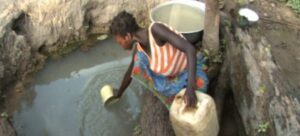Climate changes have many concerns and effects in our today’s environment. This has brought about the need to review climate change implications on our environments (Zakar, Zakar & Fischer, 2012). Climate change has direct and indirect influences on human security. As a consequence, deterioration of health may occur from climate change due to carbon dioxide (CO2) emissions. In the article by Sim Chong, Beh Boon, Lim Hwee & Mat Jafri (2015), multiple regression model was utilized to explore the correlational effects of CO2 emissions built on the energy depletion in Malaysia, by time series data for the duration of 1980-2010.
Multiple regression is another form of bivariate regression that allows for the examination of more than one independent variable (Frankfort-Nachmias & Leon-Guerrero, 2015). The article of Sim Chong, Beh Boon, Lim Hwee & Mat Jafri (2015) used multiple regression analysis because there were multiple independent variables to correlate. The date on the depletion of petroleum materials such as, non energy LPG, diesel, kerosene, refinery gas, ATF and AV Gas, fuel oil and motor petrol were used as independent predictors (or variables) to create the multiple regression equations for CO2 (Sim Chong, Beh Boon, Lim Hwee & Mat Jafri, 2015). Multiple regression is valuable for breakdown of data composed of using varied research designs, and containing experimental, quasi-experimental, and non-experimental strategies (Orme & Buehler, 2001). The authors statistically displayed and examined the data of the correlation between intake of petroleum produces and CO2 emissions via Minitab 14 (Sim Chong, Beh Boon, Lim Hwee & Mat Jafri, 2015). This system is seemed to be one of the most commonly utilize method of expressing the dependency of a response variable, on multiple independent variables to achieve linear input–yield prototypical for a calculated data set.
The result stand alone in the way in which the prophesied regression equivalence for CO2 emissions produced robust R2 = 0.9544 with measured CO2 emissions (Sim Chong, Beh Boon, Lim Hwee & Mat Jafri, 2015). Likewise, the article by Sim Chong, Beh Boon, Lim Hwee & Mat Jafri (2015) proved greater relationship of the established effects. The high correlation confirmed that the prophesied CO2 emissions was precise, signifying that the CO2 discharges expected by the multiple linear regression was similar to the compared measured CO2 emissions.
The implication for positive social change of the article by Sim Chong, Beh Boon, Lim Hwee & Mat Jafri (2015), looked into how we could present an expectation model for CO2 emissions with consumption of petroleum products, as conjecturer variables. This is another milestone of the social implication for using multiple regression models among social science researchers. It is another way for many social scientists to be in a better direction to correctly model important used of multiple regression in analysis correlation between multiple independent variables. Secondly, it is significant to view how the concurrent analysis of independent variables creates possibility to guesstimate their independent and joint effects, and to more precisely determine the focus and strength of their effects; including controlling the probability of Type I errrors (Orme & Buehler, 2001).The resulted data of this study provided another discussion relating to implication on positive social change. It provided understanding and awareness into energy methods, and CO2 emissions control modelling, as contributory to professors and policy makers, and as impending instrument for emerging energy plans and procedures (Sim Chong, Beh Boon, Lim Hwee & Mat Jafri, 2015).
Reference
Frankfort-Nachmias, C., & Leon-Guerrero, A. (2015). Social statistics for a diverse society (7th ed.). Thousand Oaks, CA: Sage Publications.
Orme, J. G., & Buehler, C. (2001). Introduction to multiple regression for categorical and limited dependent variables. Social Work Research, 25(1), 49-61.
Sim Chong, K., Beh Boon, C., Lim Hwee, S., & Mat Jafri, M. Z. (2015). Multiple Regression Analysis in Modelling of Carbon Dioxide Emissions by Energy Consumption Use in Malaysia. AIP Conference Proceedings, 1657(1), 1-5. doi:10.1063/1.4915185.
Zakar, M. Z., Zakar, R., & Fischer, F. (2012). Climate Change-Induced Water Scarcity: A Threat to Human Health. South Asian Studies, 27(2), 293-312.









